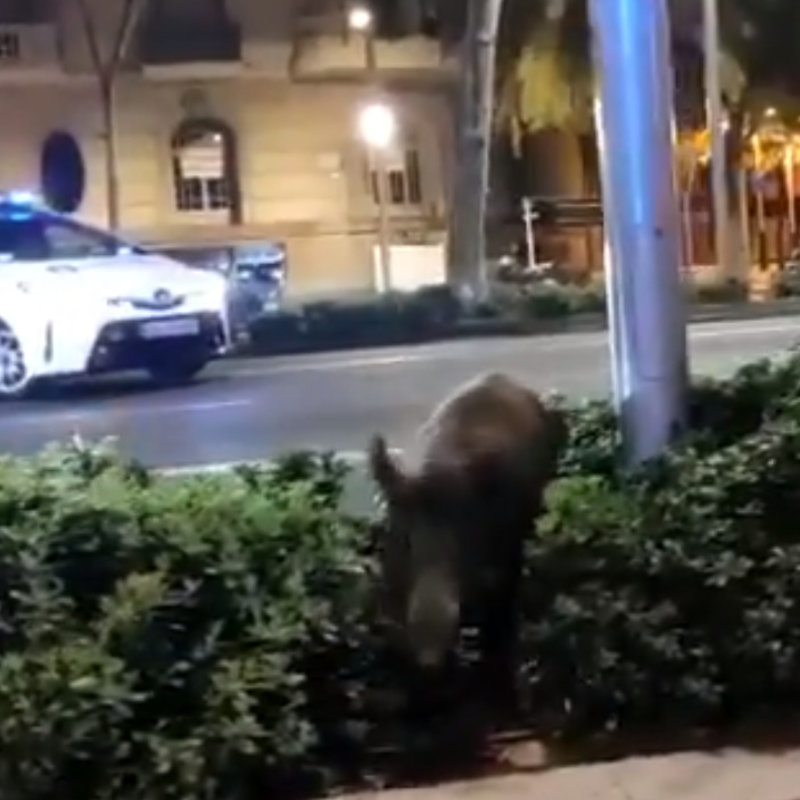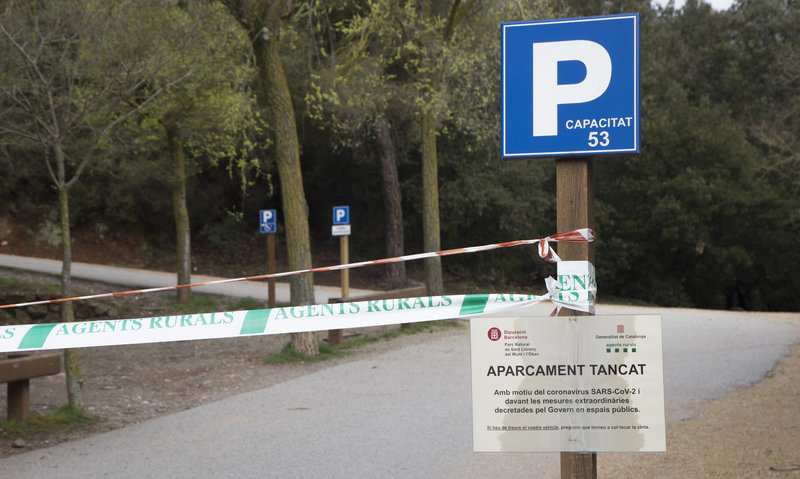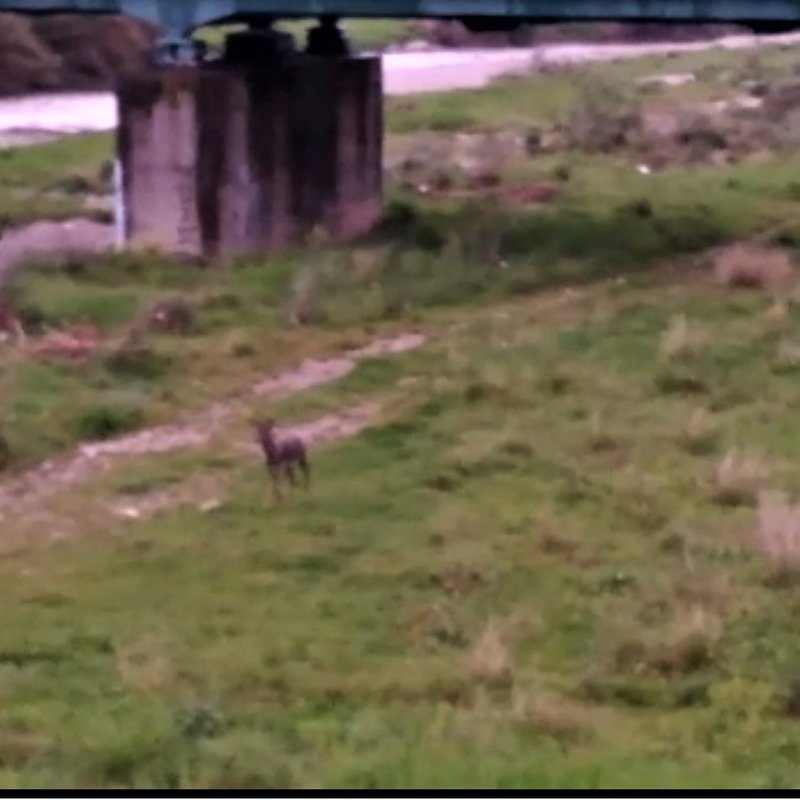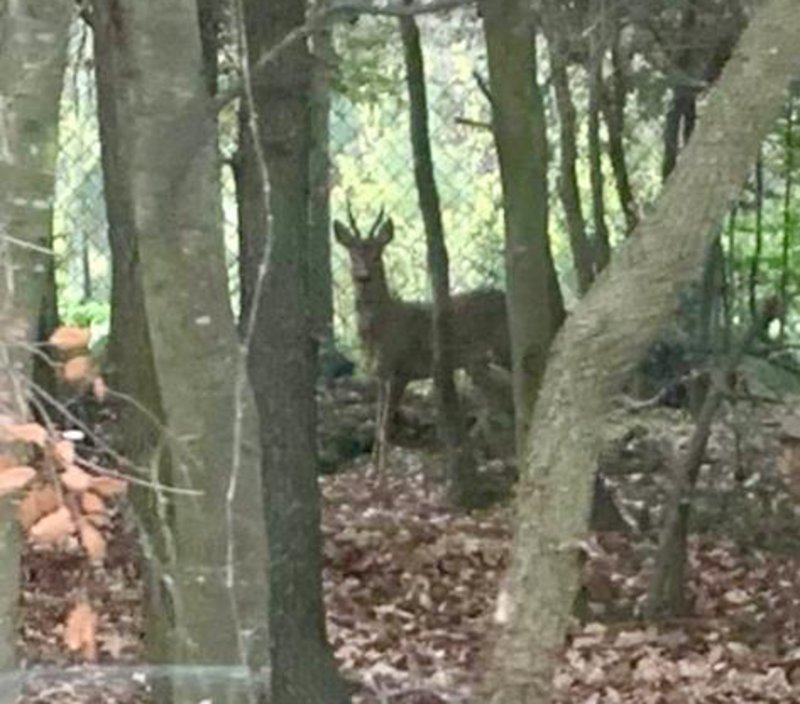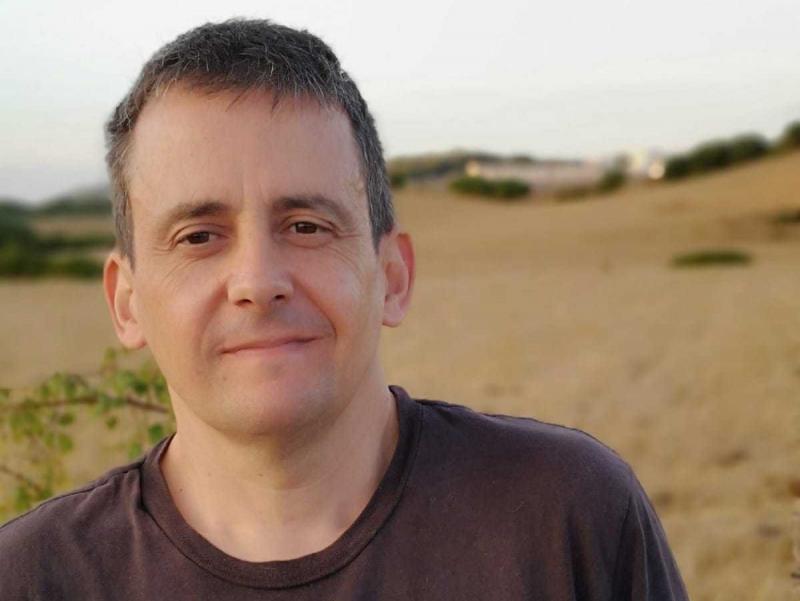Stress-free animals
Human confinement has led to wildlife appearing in unusual places; however, they are not reclaiming territory, only “poking their heads out”, as on other occasions; some species are suffering negative effects from confinement
What we may be witnessing is an early state of what would happen if human withdrawal from the natural environment were to last much longer
The situation may be unusual, but it would be precipitous to think that the ways in which humans and animals relate, a centuries-old bond, will change due to a few weeks of confinement. What we may actually be witnessing these days is an early state of what would happen if human withdrawal from the natural environment were to last much longer. We have all seen viral videos – some of which are actually real but were filmed at other times – showing animals that have been spotted in unusual places, such as wild boar almost in the heart of Barcelona, deer in Montcada, foxes in the middle of a grass hockey field in Terrassa, and groups of dolphins leaping off the coast of Arenys.
But experts reject the theory that wildlife is reclaiming its territory due to the lack of human activity. While reminding us that they cannot yet verify it because of the confinement, the experts say the effects will be much smaller, that we have seen images like these before, and that animals have become de-stressed thanks to the disappearance of the human commotion all around them. As biologist and environmental consultant Pere Alzina puts it: “Animals are not reclaiming areas, they’re just poking their heads out.”
In fact, both Alzina and Dolors Vinyoles, associate professor in the Department of Evolutionary Biology, Ecology and Environmental Sciences at the University of Barcelona’s Faculty of Biology, argue that some animals are now suffering and others will suffer in the future if confinement is extended. “Animals that find some of their food in urban centres, such as wild boar, pigeons, sparrows, the Turkish turtledove, the Argentinean parrot..., could suffer some decline, but as a rule this should not happen in the short term. To see such effects, it would take more than one reproductive cycle,” Vinyoles says. Alzina gives concrete examples, “gulls, pigeons and sparrows, who have become accustomed to feeding off what children leave on the ground at the end of playtime.” In some cases, Alzina argues, this would not be entirely negative either, as some of these species, such as the Argentinean parrot, are considered pests. However, others “like the common partridge could be severely affected, as they need humans to live.”
Reproductive period
Spring is breeding time for animals, and due to this biological fact human confinement could be clearly beneficial to them. In this sense, Emilio Valbuena, the biologist responsible for the Garraf, Olèrdola i Foix Natural Park, argues that, although he can not reliably verify it until he returns to work in the field, the confinement could favour the reproduction of the two pairs of Bonelli?s eagles they have in the park. Valbuena does believe that “animals will slowly risk exploring areas they do not normally inhabit, especially those living in border spaces between natural and inhabited areas, such as residential areas,” but he also says: “Have we never seen wild boar in the Vall d’Hebron before?”
As for mammals, Alzina tells us that with the exception of rabbits and hares, they tend to be evasive and only appear at twilight, and because of this, spotting one is more surprising. He explains that in the Mar i Murtra Gardens in Blanes these days you can see hedgehogs eating snails and slugs “in broad daylight”. Alzina also doubts whether wild boar are coming closer to the urban fabric: “For 10 years now, wild boar have been coming closer to the urban skin, the area between the natural and the urban environment, and it is normal for them to dare to venture a little further on nights where there are no humans around.” The biologist provides evidence of why these animals would dare to do this: “They can find more food in an organic bin than in hectares and hectares of forest.”
Valbuena also predicts a “minimal” effect on flora, and Vinyoles recalls that “farming habitats haven’t changed, since all cereals were already planted before confinement and this is the habitat of many birds and mammals. Forests conditions have not changed either: trees and plants continue their natural flowering cycle and provide shelter for wildlife just as in any other springtime.”
Other animals that might be favoured by confinement are amphibians, such as salamanders and toads, which are also in the breeding season and often die crushed when crossing roads or paths. Wild boar and deer are also affected in this way, and Catalan government data indicate that almost 8,300 animals were killed between 2010 and 2014 on the 6,000 km of roads it manages. That figure was a third more than in the previous study by the government, which covered the 2007-2011 period. Of course, it is likely that there will be more wildlife on the roads when drivers do finally return.
feature
Insufficient respite
Two thirds of Catalonia’s fishing fleet have been moored since lockdown began, although some do continue to work. Joan Baptista Company, a biologist at the Institute of Marine Sciences, states that this is a “natural, but insufficiently short respite. If it were to last at least two months, habitats would begin to recover,” he says.
Environmental consultant Pere Alzina adds that “the Mediterranean is still under the effects of Storm Gloria, a huge supply of nutrients that has helped reactivate the system and led to sightings of more fish, such as tuna and dolphins.” Experts believe that the reduced sea traffic is encouraging fish to move closer to the coast. “We don’t know how many similar episodes may have occurred in recent decades, but previously we only had word of mouth rather than mobiles,” Alzina reflects.

